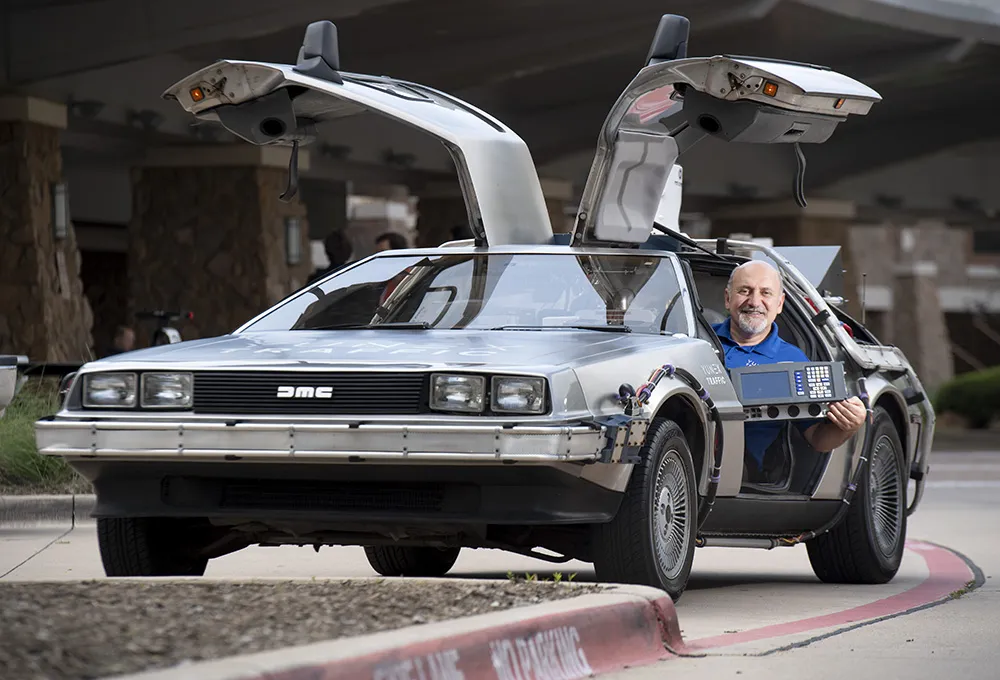As the Highways UK event approaches on 25-26 November, Jennie Martin, secretary general of ITS United Kingdom, believes the technological transformation of transport in the UK has hardly begun.
She says, “The changes that are coming are going to affect everyone. We are going to be answering questions most people haven’t even thought to ask. In ITS, the UK is ahead of the game, but the game is changing. It’s an incredibly exciting time.’”
November 13, 2015
Read time: 3 mins
As the 8268 Highways UK event approaches on 25-26 November, Jennie Martin, secretary general of ITS United Kingdom, believes the technological transformation of transport in the UK has hardly begun.
She says, “The changes that are coming are going to affect everyone. We are going to be answering questions most people haven’t even thought to ask. In ITS, the UK is ahead of the game, but the game is changing. It’s an incredibly exciting time.’”
Martin is keen to discuss the need for a radically new approach to transport policy:
“It’s not just about A to B. There is a whole alphabet of human need after that and research is showing that transport is related to all of it. There is a human need to travel for at least one part of every day, for example, regardless of purpose. It is good in itself, like listening to music.”
Can transport policy be responsive to these deeper, less functional human needs? Jennie Martin answers with an emphatic yes. It not only can, but it must if we are to build healthier cities and towns, she says.
“Big data is giving us information we couldn’t have dreamt of 20 years ago. We are excellent at collecting it but have got to get more inventive at using it. It cuts right through into other areas of policy. It can help answer questions like why people miss hospital appointments or job interviews by revealing structural barriers that are invisible to us at the moment. The data can cut through to causes and effects far beyond forecasting travel patterns if we ask the right questions.”
The message is that more intelligent transport systems can deliver not only smarter highways but better social policy outcomes across the board from better education to better health. Which raises the question of funding: who pays and who benefits?
“We need a more constructive discussion of the cost/benefit equation,” argues Martin. ‘It really must be a cross-sector conversation. It is ironic that transport professionals are often so bad at building these networks.”
Martin claims it’s a discussion that will need to happen soon if it is to keep up with the changes to travel patterns that could be on their way via ITS. She already has one eye focused on Finland and the experiment with ‘MaaS’ or ‘Mobility as a Service’, for example. Each MaaS user buys a single transport super-pass for a period that covers all of her or his travel needs from flights to car clubs to parking. It simplifies the transport experience and encourages better, more responsive provision. It will need some fearsome back-office support to make it work, especially in a more complex environment like the UK, but it would be foolish to bet against something like MaaS setting the pace for transport policy of the future.
Martin says that however we experience transport, ITS is already a part of it, even if it is only that faulty traffic light that brings it to mind. But what comes next could be about to take that to a new level. The public and politicians are already more excited about the possibilities than ever before with self-driving and electric vehicles regularly in the news. The doors to the backroom have already opened that little bit, perhaps this is the moment to give them a proper thrust.
She says, “The changes that are coming are going to affect everyone. We are going to be answering questions most people haven’t even thought to ask. In ITS, the UK is ahead of the game, but the game is changing. It’s an incredibly exciting time.’”
Martin is keen to discuss the need for a radically new approach to transport policy:
“It’s not just about A to B. There is a whole alphabet of human need after that and research is showing that transport is related to all of it. There is a human need to travel for at least one part of every day, for example, regardless of purpose. It is good in itself, like listening to music.”
Can transport policy be responsive to these deeper, less functional human needs? Jennie Martin answers with an emphatic yes. It not only can, but it must if we are to build healthier cities and towns, she says.
“Big data is giving us information we couldn’t have dreamt of 20 years ago. We are excellent at collecting it but have got to get more inventive at using it. It cuts right through into other areas of policy. It can help answer questions like why people miss hospital appointments or job interviews by revealing structural barriers that are invisible to us at the moment. The data can cut through to causes and effects far beyond forecasting travel patterns if we ask the right questions.”
The message is that more intelligent transport systems can deliver not only smarter highways but better social policy outcomes across the board from better education to better health. Which raises the question of funding: who pays and who benefits?
“We need a more constructive discussion of the cost/benefit equation,” argues Martin. ‘It really must be a cross-sector conversation. It is ironic that transport professionals are often so bad at building these networks.”
Martin claims it’s a discussion that will need to happen soon if it is to keep up with the changes to travel patterns that could be on their way via ITS. She already has one eye focused on Finland and the experiment with ‘MaaS’ or ‘Mobility as a Service’, for example. Each MaaS user buys a single transport super-pass for a period that covers all of her or his travel needs from flights to car clubs to parking. It simplifies the transport experience and encourages better, more responsive provision. It will need some fearsome back-office support to make it work, especially in a more complex environment like the UK, but it would be foolish to bet against something like MaaS setting the pace for transport policy of the future.
Martin says that however we experience transport, ITS is already a part of it, even if it is only that faulty traffic light that brings it to mind. But what comes next could be about to take that to a new level. The public and politicians are already more excited about the possibilities than ever before with self-driving and electric vehicles regularly in the news. The doors to the backroom have already opened that little bit, perhaps this is the moment to give them a proper thrust.










